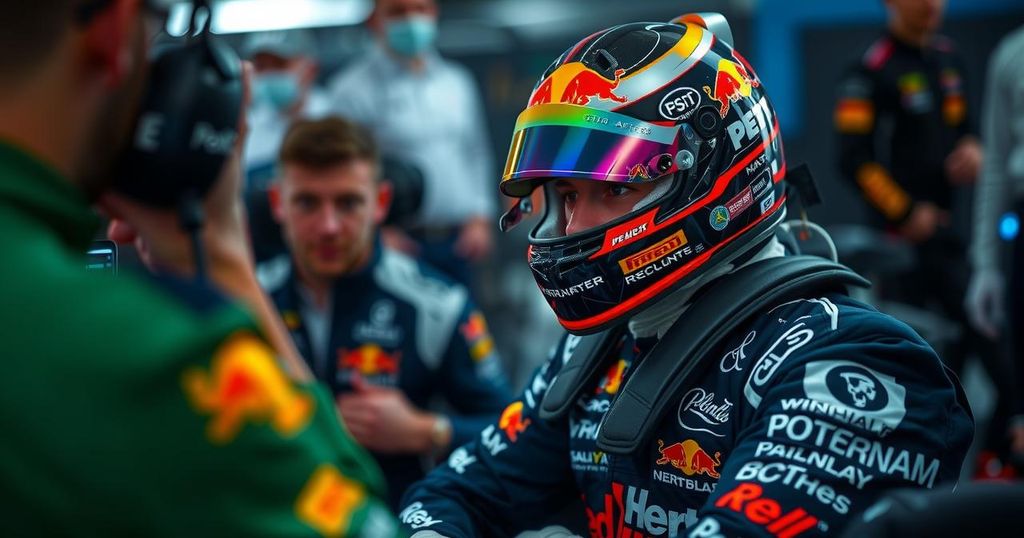Lando Norris won the Brazilian GP sprint race but expressed that he could not take pride in the victory, having received it through team orders from McLaren, which allowed teammate Oscar Piastri to pass him. The decision was made to enhance Norris’ chances in the drivers’ championship, leading to a McLaren one-two finish. Both drivers acknowledged the challenges posed by team dynamics in their pursuit of individual and collective goals.
Lando Norris expressed ambivalence regarding his recent victory in the Brazilian Grand Prix sprint race, indicating the circumstances under which he secured the win did not afford him the pride typically associated with such achievements. The McLaren driver benefited from a strategic team decision that allowed his teammate, Oscar Piastri, who had initially claimed pole position and appeared poised for victory, to relinquish his lead to bolster Norris’ standing in the drivers’ championship. The team directive emerged just a few laps from the conclusion of the race, coinciding with the anticipation of a potential safety car situation due to a disabled vehicle on the track. Consequently, Piastri, despite his evident reluctance, complied with the order and permitted Norris to finish first, resulting in a one-two finish for McLaren. This victory subsequently narrowed the championship gap between Norris and the reigning champion, Max Verstappen, cutting the latter’s lead to 45 points. In commentary reflecting on the nature of his win, Norris stated, “I’m not proud to win a race like I did today. It’s not how I want to – I’m not proud of it, basically. So I will work hard to go and do a better job in qualifying later and put myself in a better position for the race.” Piastri, engaged in the discussions surrounding the exchange of positions, acknowledged that while winning is preferable, he understood the necessity for the decision based on the team’s overarching goals. He remarked, “It’s not as fun as winning but I know the position that we’re in,” highlighting the team-centric nature of such decisions in Formula 1. Overall, the McLaren duo navigated their responsibilities to the team effectively under challenging circumstances, affirming their commitment to collaborative success despite the inherent difficulties posed by team orders. They both recognized the additional pressures and nuances involved in sprint races, emphasizing their objective to maintain competitive positions for their constructors’ championship bid.
Lando Norris and Oscar Piastri, racing for McLaren, faced a unique situation during the Brazilian Grand Prix sprint race where strategic team orders played a pivotal role in determining the race outcome. Traditionally, Formula 1 drivers aim for individual success, so the exchange of positions, particularly in a sprint event, raises complex dynamics around competition, teamwork, and personal aspirations. These intricacies were further amplified by the historical context of previous races, such as the Hungarian Grand Prix, which had seen contentious team orders that echoes through the ongoing dialogue about driver autonomy and team strategy in the sport.
In conclusion, while Lando Norris achieved a significant victory in the Brazilian GP sprint race, his reluctance to celebrate underscores the complexities and ethical dilemmas surrounding team orders in Formula 1. Both Norris and Piastri showcased a commendable commitment to their team’s objectives, navigating the challenging dynamics of individual ambition versus collective success. As their season unfolds, the implications of such strategic decisions will continue to influence their championship pursuits and team cohesion.
Original Source: www.autosport.com






